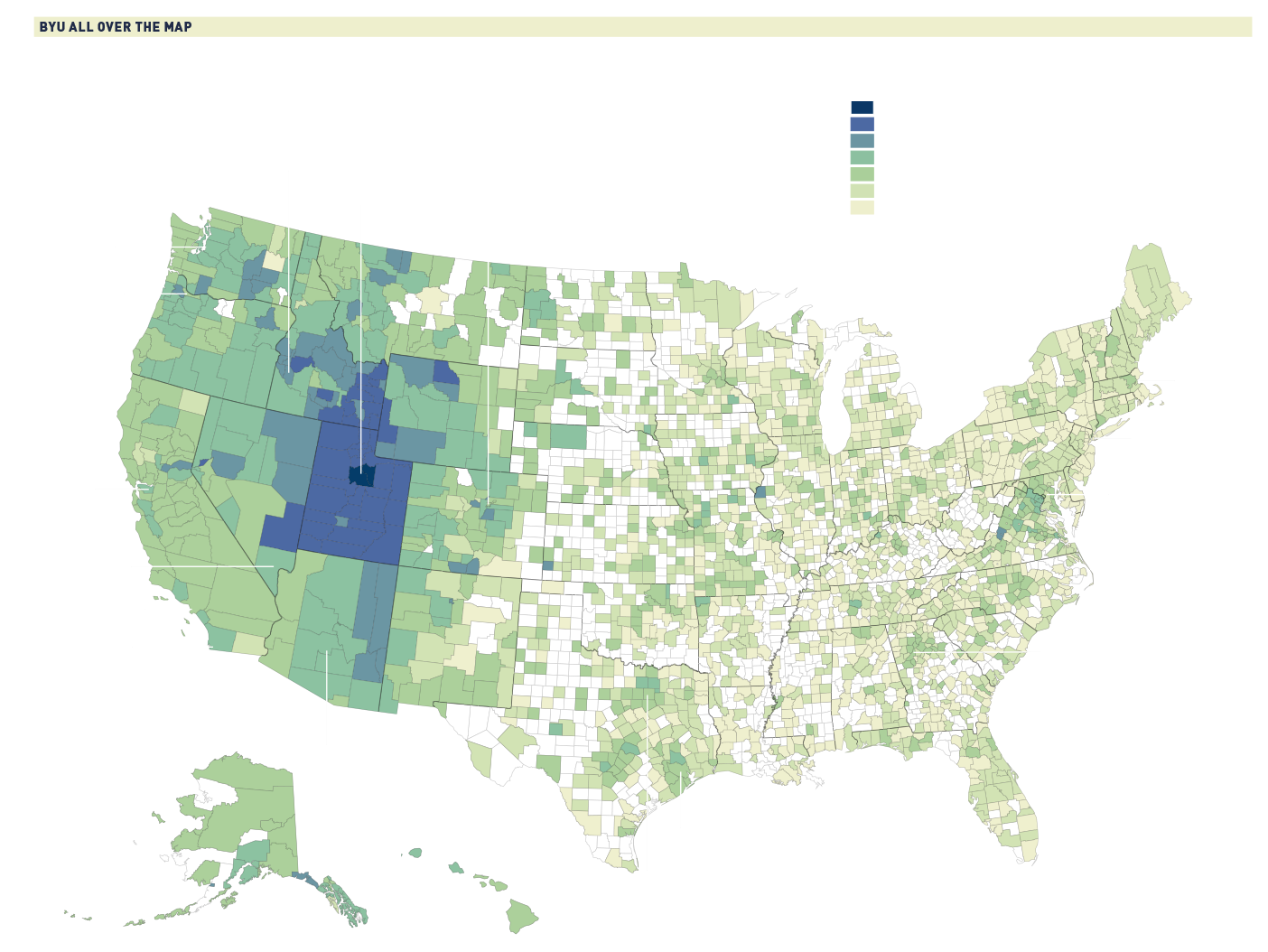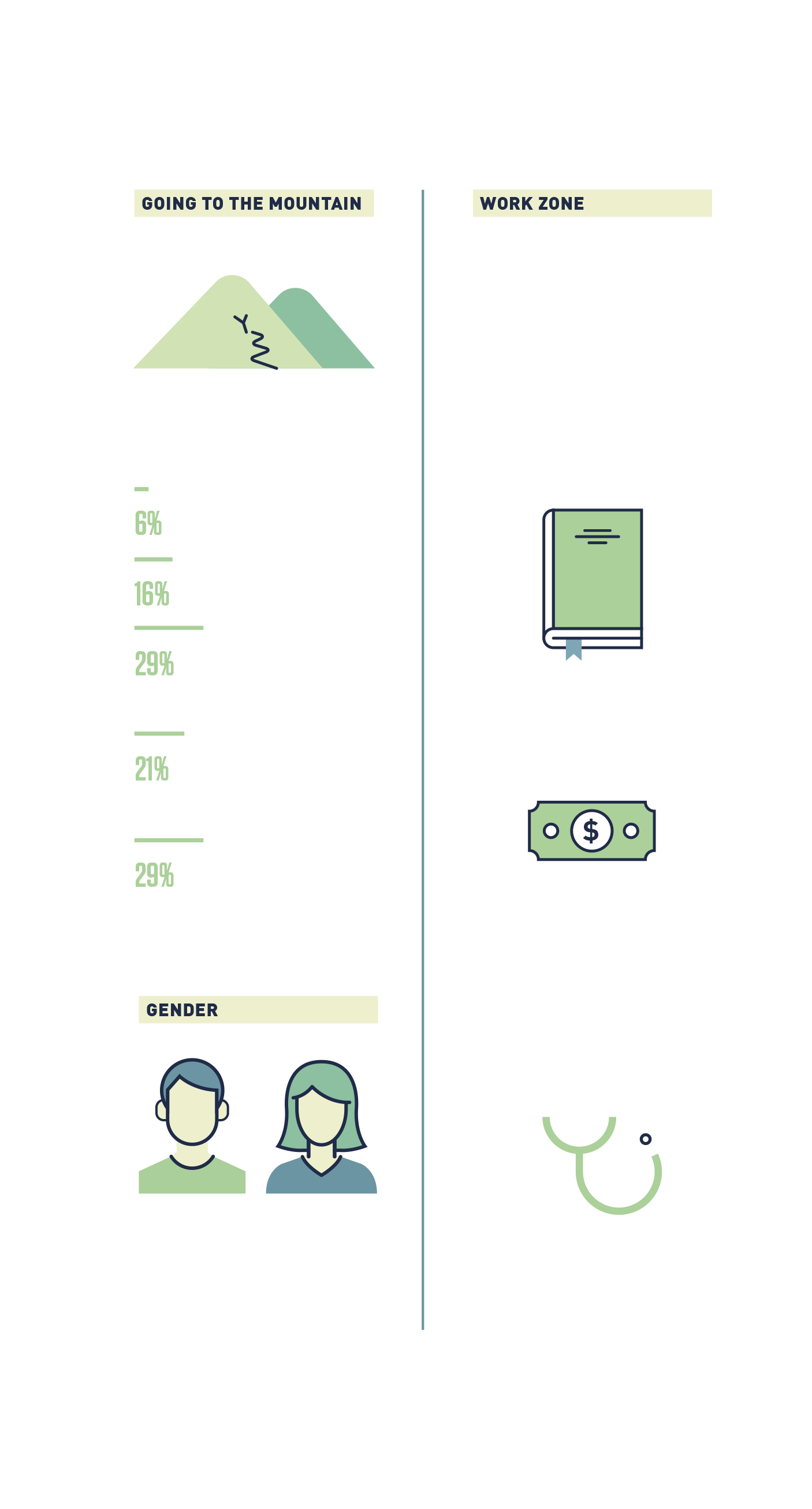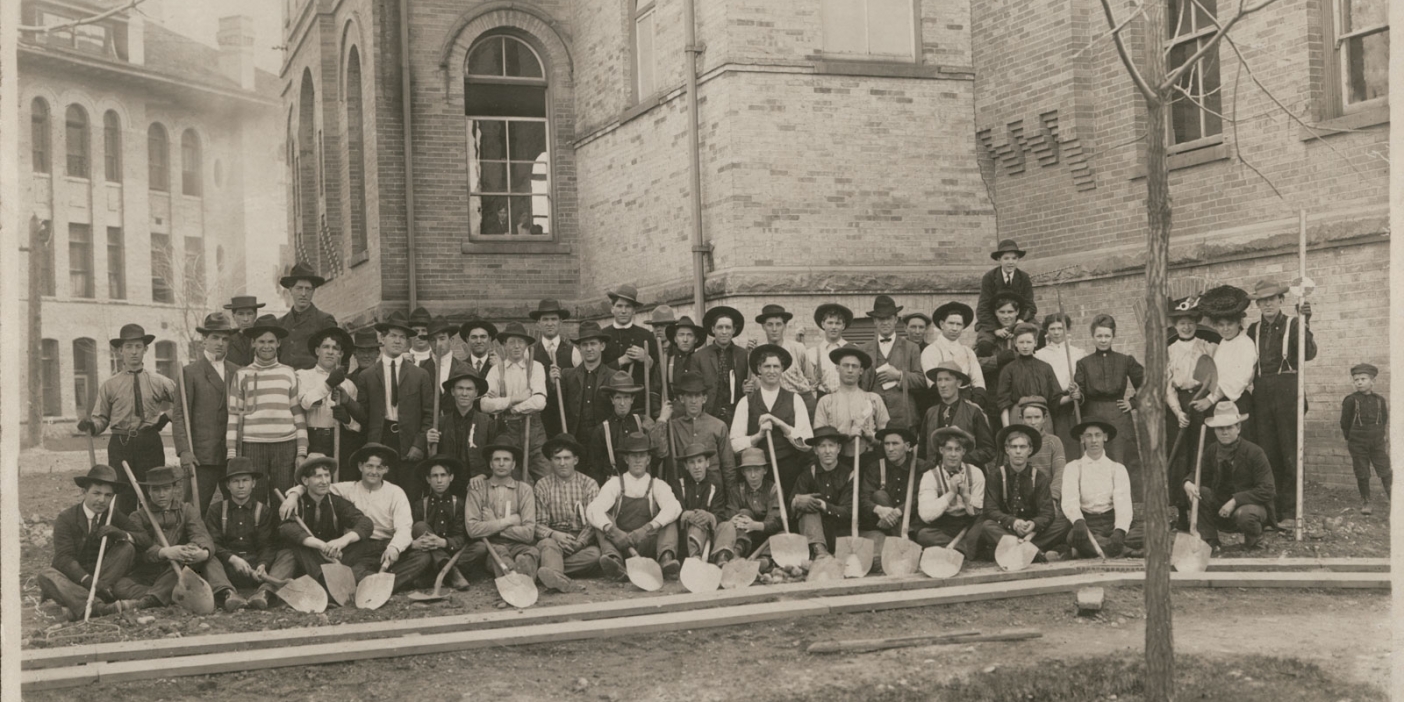This Is Us

The far-flung BYU family can be found just about everywhere—and its members stand out from the crowd in all sorts of ways.
What distinguishes BYU graduates within the communities where they land? What does the BYU alumni fingerprint look like? Is there a BYU DNA? We had our hunches, but we thought we’d check with the alumni themselves. So we sent out a sprawling survey to a random sampling of 4,000 graduates, hearing back from about 1,200 on everything from their family makeup to their political leanings to their knowledge of the Cougar fight song.
Some of what we found could be expected (spoiler alert—BYU grads are overwhelmingly Latter-day Saints, they tend to have plus-sized families, and nearly all were lost in Stats 121). But, comparing the results, where possible, to national survey findings, there were some surprises too. BYU grads, it turns out, volunteer in their communities a full three and a half times more than the national average. And while grads overall lean conservative politically, more and more younger alumni describe themselves as moderates.
To complement these findings, Brandon S. Plewe (BS ’92), an associate professor of geography and award-winning cartographer, plotted BYU’s 300,000 U.S. grads on a map, showing county-by-county where their influence is most pronounced. As our survey results show, it’s the influence of a highly educated, family-oriented, community-conscious, ice-cream-loving, Cougars-cheering BYU family.
